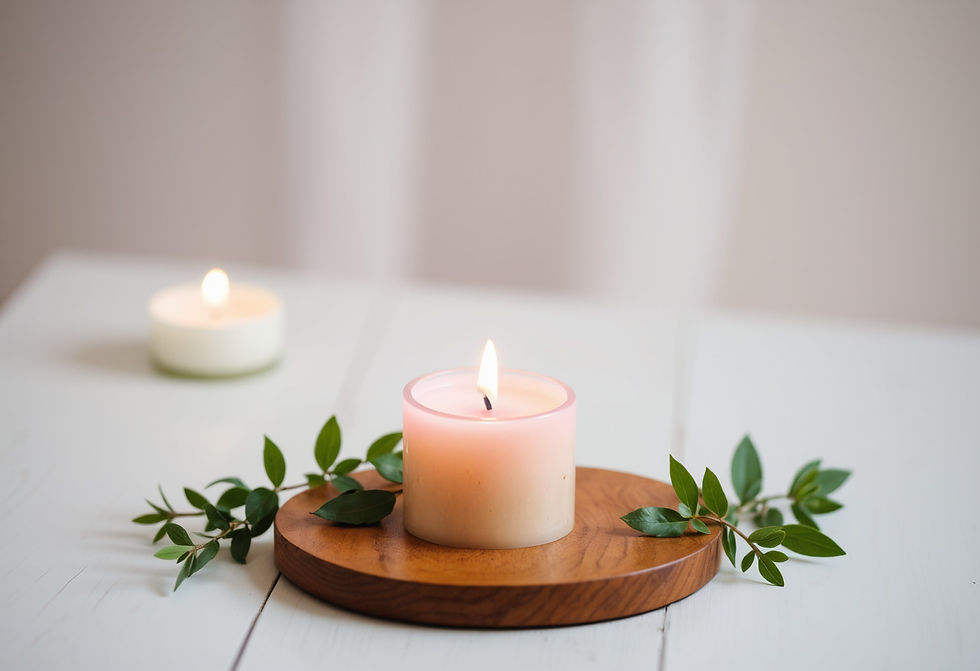Why Journaling Can Be a Real Superpower for Mental Well-Being
- Nicole Ardin
- Feb 14
- 4 min read
Updated: May 30
Let’s get one thing straight: journaling isn’t just for teenagers writing about their crushes or the days they spent pining over something trivial - not that there is anything wrong with that - but journaling can be so much more than that. In fact, journaling is a mental health powerhouse—something I wish more people would understand and embrace fully.
It’s easy to overlook how much writing down our thoughts and emotions can impact our mental well-being. After all, we live in a world that’s constantly on the go, with little space for reflection. But journaling allows us to slow down, breathe, and take a moment to be with ourselves. If you haven’t tried it yet, let me explain why picking up a pen or tapping on your phone can actually be a game-changer for your mental health.
The Science Behind It
Research shows that journaling has remarkable benefits when it comes to mental well-being. Psychologist James Pennebaker, who has spent years studying expressive writing, discovered that putting feelings into words can help us process and release emotions. When we write about challenging or traumatic experiences, it can decrease stress, improve mood, and even help us sleep better.
In a study by Pennebaker, participants who wrote about emotional events for 15-20 minutes a day over four consecutive days showed significant improvements in both physical and mental health. They reported fewer doctor visits and experienced less stress and anxiety. Writing allows the brain to make sense of chaotic emotions and helps shift from a “fight-or-flight” response into a more grounded, reflective state.
Journaling can also activate the prefrontal cortex—the area of the brain responsible for complex thought, decision-making, and self-reflection. By engaging in journaling, we’re activating our ability to problem-solve and analyze situations from a place of clarity rather than emotional overwhelm.
My Personal Take
I’ll be the first to admit that I used to view journaling as something that didn’t quite fit into my adult life. But after embracing it as a consistent practice, I realized how much it enhanced my well-being. It’s like having an ongoing conversation with my inner self, a space where I can let go of everything without judgment. It’s where I can talk to myself in ways I wouldn’t feel comfortable doing out loud.
What I love most is that journaling allows me to release what’s weighing on my mind without having to carry it around. It creates a safe space where I can express emotions that are sometimes too overwhelming to share with anyone else. I’ve noticed how much lighter I feel after a journaling session. It's my personal form of mental hygiene. Like brushing my teeth, it helps me clear my mind of any built-up clutter.
And, let’s be real—who doesn’t love having a space to vent? It’s like talking to a friend who won’t judge you. But there’s more to it than just venting. Through journaling, I’ve learned how to reframe negative thoughts, recognize patterns in my behavior, and even appreciate the small wins in my life. That’s the power of reflection.
Journaling as a Tool for Self-Discovery
Journaling isn’t just a release mechanism—it’s a powerful tool for self-discovery. It’s like opening a treasure chest full of insights about yourself. The beauty of journaling is that it doesn’t require any fancy techniques or “right” way to do it. It’s your practice. Your rhythm. Your rules.
Whether you choose to free-write your stream of consciousness, follow specific prompts, or track your moods, the act of writing becomes a reflection of who you are in that moment. It provides a mirror that lets you see yourself more clearly. And, over time, you can look back at your previous entries and notice how you’ve grown, learned, and healed.
One of the ways I’ve personally benefited from journaling is through gratitude journaling. It might sound a bit cliché at first, but listing out what I’m grateful for—whether it’s the perfect cup of coffee in the morning or a meaningful conversation with a friend—has drastically shifted my mindset. Gratitude journaling helps me keep the bigger picture in mind, even when life feels like it’s falling apart.
Making Journaling Part of Your Routine
Now, I know we’re all busy, and it can seem hard to carve out time to journal. But I promise you, 5 minutes a day can work wonders. Whether it’s in the morning as you set intentions for the day, or before bed to release any built-up stress, just find a time that works for you.
Here’s the key: it’s not about making it a big, time-consuming ritual. It’s about making it a consistent part of your routine so you can create space to process and reflect regularly.
You don’t need to worry about structure. Write about whatever feels right in the moment, even if that’s a simple list of thoughts. The important thing is that you’re engaging with your inner world, and that in itself is a form of self-care. And if you ever find yourself doubting whether your words matter, trust me—they do. It’s all part of your healing growth journey.
Wrapping It Up
Journaling is more than just writing—it’s a superpower. It’s the tool that helps us make sense of our thoughts, releases emotional tension, and offers insights into who we are and who we’re becoming. It’s an act of self-love, a way to show up for yourself, no matter what life throws your way.
So, grab that notebook, journal on your phone, or even use a sticky note if that’s what works. The power is yours. You’ve got this.





Comments